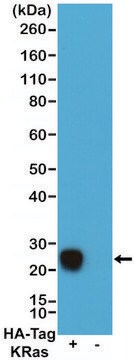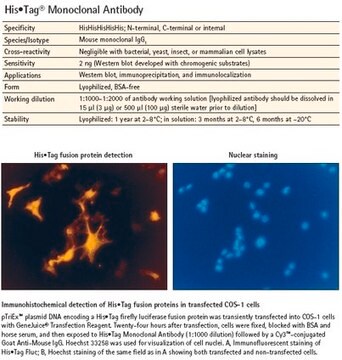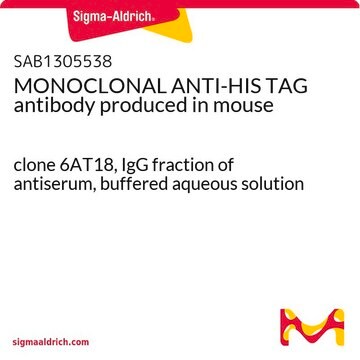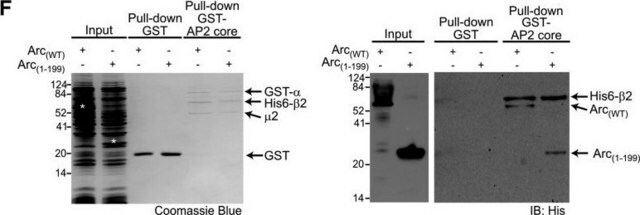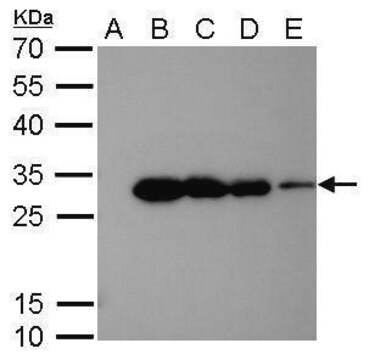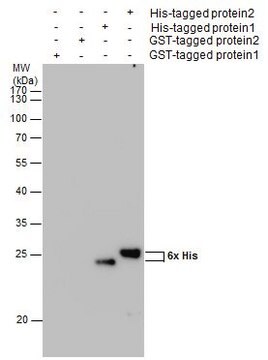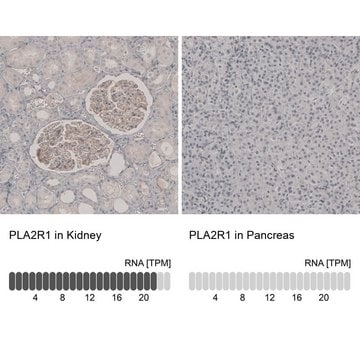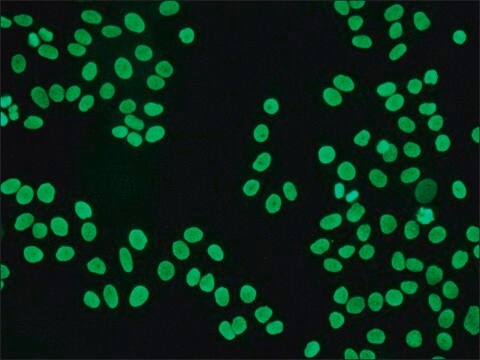SAB5600096
Anti-His-Tag Chimeric antibody, Human Monoclonal
recombinant, expressed in HEK 293 cells, clone RMH01, purified immunoglobulin
Synonym(s):
Anti-His tag antibody
About This Item
recombinant monoclonal
WB
western blot: 0.1-1 μg/mL
Recommended Products
recombinant
expressed in HEK 293 cells
Quality Level
antibody form
purified immunoglobulin
antibody product type
primary antibodies
clone
RMH01, monoclonal
recombinant monoclonal
form
buffered aqueous glycerol solution
technique(s)
capture ELISA: 0.1-2 μg/mL
western blot: 0.1-1 μg/mL
isotype
IgG
shipped in
wet ice
storage temp.
−20°C
target post-translational modification
unmodified
General description
Specificity
Immunogen
Features and Benefits
Physical form
Disclaimer
Not finding the right product?
Try our Product Selector Tool.
Storage Class Code
10 - Combustible liquids
WGK
WGK 2
Regulatory Listings
Regulatory Listings are mainly provided for chemical products. Only limited information can be provided here for non-chemical products. No entry means none of the components are listed. It is the user’s obligation to ensure the safe and legal use of the product.
JAN Code
SAB5600096-100UG:
Choose from one of the most recent versions:
Already Own This Product?
Find documentation for the products that you have recently purchased in the Document Library.
Customers Also Viewed
Our team of scientists has experience in all areas of research including Life Science, Material Science, Chemical Synthesis, Chromatography, Analytical and many others.
Contact Technical Service